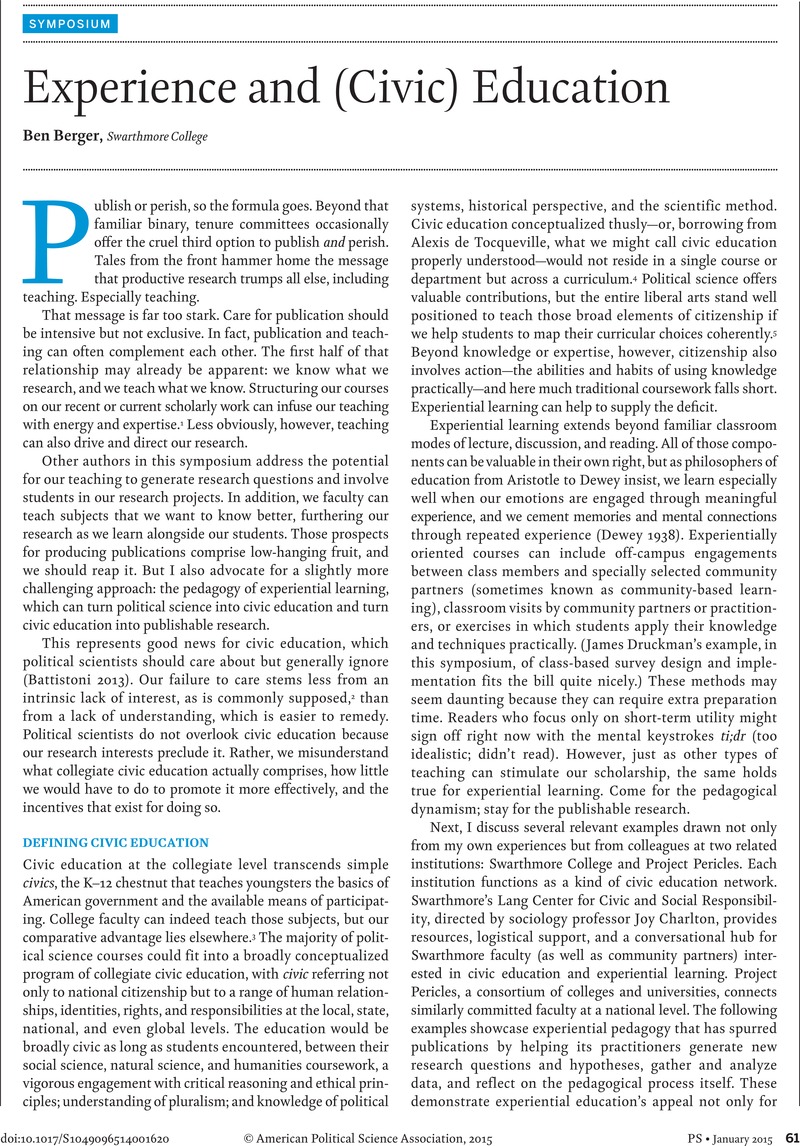Crossref Citations
This article has been cited by the following publications. This list is generated based on data provided by Crossref.
Anson, Ian G.
2017.
Audience, Purpose, and Civic Engagement: A Reassessment of Writing Instruction in Political Science.
Journal of Political Science Education,
Vol. 13,
Issue. 4,
p.
389.
Glazier, Rebecca A.
and
Bowman, Warigia M.
2021.
Teaching Through Community-Based Research: Undergraduate and Graduate Collaboration on the 2016 Little Rock Congregations Study.
Journal of Political Science Education,
Vol. 17,
Issue. 2,
p.
234.



